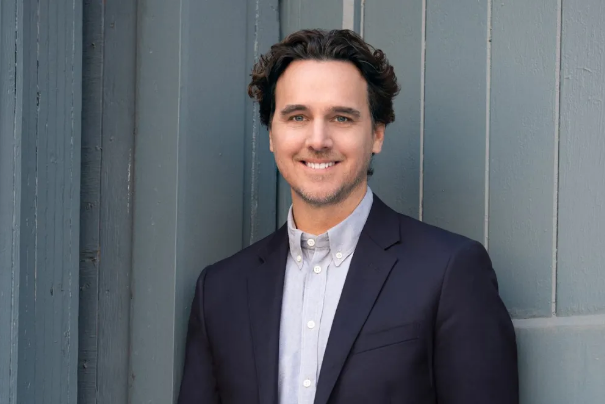Fox Entertainment CEO Rob Wade Lays Out New Structure, Future Plans and the Fate of Third-Party Shows Like ‘9-1-1: Lone Star’

It’s been more than a year and a half since Rob Wade took over as CEO of Fox Entertainment. On Monday at the Banff World Media Festival, Wade made his first extensive public comments about how it’s been going so far — and elaborated on any new acquisition plans he might have for the company, the fate of some of the third party shows still on his air (including “9-1-1: Lone Star”) and the decision behind his recent corporate restructuring network, studio and distribution operations into their own divisions.
In a conversation prior to the panel, Wade noted that in the five years since the 20th Century Fox TV assets were sold to Disney, leaving Fox as an independent network, the company has built up a new stable of production businesses — including animation studio Bento Box (“Krapopolis,” “Grimsburg”), unscripted studio Fox Alternative Entertainment (“The Masked Singer,” “I Can See Your Voice”), Fox Scripted Studios (“Animal Control”), MarVista Entertainment (Hallmark Channel’s “The Way Home”), Studio Ramsay Global (“Next Level Chef”) and TMZ.
“We kind of built them, loosely structured around scripted and unscripted, but it was kind of more a fluid organization,” he says. “We basically built up enough scale and I think now was the right time to put them together in more traditional structure.”
That meant creating three oversights: the Fox TV network under prexy Michael Thorn; Fox Entertainment Studios, where all of those production units now live, under head Fernando Szew; and the sales division Fox Entertainment Global, which is on the hunt for a permanent leader.
“So, taking the network businesses as a one piece, taking the studio businesses as a group as another and then really building on distribution now we started to build a bigger pipeline there,” Wade said. “This has streamlined the business a lot. It’s a much more sort of straightforward structure.”
In terms of new acquisitions, Wade said that “there’s nothing like right now I can share with you in terms of our targets for obvious reasons. But there really is nothing too small or too big we’re looking at.”
With the expansion of Fox Entertainment Studios, the company is continuing to look at more in-house production opportunities — something it has done quite a bit in the unscripted space. In scripted, initial series “Monarch” didn’t last long, but comedy “Animal Control” has now been picked up for three seasons and will soon be paired with another in-house laffer, Denis Leary’s “Going Dutch.”
“You obviously get rights retention, which is important, and I think you can see now the importance of retaining IP and rights to shows is very prevalent in this new world,” Wade said. “Secondly, there was such a huge proliferation of content across all of media and so many hours of television, that we were just finding it very difficult to get the ideas to come in and get them executed. Bringing something in house can guarantee focus in the production process.
“And finally, we were looking at the margins on a lot of these shows and not only were companies taking a production fee, but they’re also taking handsome margins off the top of production costs,” Wade added. ”And there just wasn’t the room anymore to sustain that. That was something of the past.”
Wade took aim at how the streaming businesses disrupted the conventional TV ecosystem — and not necessarily in a good way. “I think the business changed in 2010 or 2011,” he said on stage later. “Vast amounts of money was spent on content, but it was house money, it wasn’t the money that was was earned from the licensing and distribution and producing of content, which is how we all in this room began. I have friends in there at the moment who are struggling, and finding it difficult.”
But, the exec added that he’s now optimistic that we’re working past these growing pains. “What I say to them is good news is just around the corner and I think that the light is always darkest before the dawn. And I really feel this dawn is happening there because the business model on which the streamers tried to disrupt the business has been proven that it didn’t work. So now what we’re seeing is that going back to a model, which worked.”
Wade said as the marketplace contracts, more producers are coming in to Fox, “so we are getting more ideas and people are being more creative and realistic about budgets.”
Wade noted that now that he is across network, studio and distribution, he’s been looking at other parts of the business and unique financing models — including pacts with companies like Channel Four, Foxtel and Bell Media. “We’re starting to have some really interesting conversations through our studios and distribution companies,” he said.
In dealmaking, Wade also pointed to the Studio Ramsay Global joint venture with Gordon Ramsay, which has already yielded the TV series “Next Level Chef,” with “many more to come. We also have various shows in different stages of greenlight with other third party buyers.” And the venture has launched the entertainment platform Bite, which puts all of the Ramsay content together under one umbrella.
Fox Entertainment has also lined up partnerships like Ramsay, Denis Leary, Dan Harmon, Jon Hamm, John Wells, Howard Gordon, Jamie Foxx, Marta Kauffman and Rob Lowe. On Monday, Wade announced a new deal with “Lego Masters” host Will Arnett.
As for the long-term fate of licensed programming on Fox’s air from other suppliers — Disney, in particular — Wade said there’s no update on the fate of “9-1-1: Lone Star” and if it’s the show’s final season (although all signs point to its impending end).
Whether or not shows like “The Simpsons” or “Family Guy” might leave Fox, Wade said, “We prepare for this all the time. I feel like we have a great relationship with Disney. While I am aware of the possibility that some of the animation may go, I’m very hopeful that there’s going to be a path forward there. Obviously, we’ve seen ‘9-1-1’ move to ABC and we’re really proud of that show and that it’s doing well. If we were the studio for that show, and ABC had that show, I don’t think it would make economic sense for them either. I think it’s about how to make the economics of a show like that work. You have to both studio and network and distributor of it. I kind of understand that.”
In noting the difficulty of negotiating such deals, “I still think there’s a mistrust between representation of agents, managers and the networks in terms of what a show can cope up with in terms of costs. It’s something that only can only be proven as you see these shows go. It’s pretty obvious, if a show is leaving a network, and the numbers are good, no one’s just doing it out of spite. It’s because there are financial complications with that. Secondly, it means if you don’t have certain shows on your network, it leaves opportunity.
“So when you’re looking at a show that is doing great in the ratings, but it’s too expensive, you have to think well, is there opportunity to replace it with something with a with a more modern and dynamic business model that we could replace it with,” he said. “In regards to ‘9-1-1: Lone Star,’ we’re seeing where that goes. Again, it’s a conversation between network and studio. Until we get to a point where we really know what’s happening with that show, we’re really excited about it in the fall. It’s great creative.”
Wade said his company was made up of “realists” when it comes to these deals. “We’re prepared. And we’re optimists as well,” he said. “I think we just see opportunity. The network is such a superpower. It’s such a powerful tool.”
As for a look ahead to potential production disruption should the studios and IATSE not come to a deal, Wade said Fox had contingency plans in plan in case of a strike. “We’re absolutely ready for any eventuality,” he said. “But we really, really hope it doesn’t happen. Looking to the people in the room, it’s just not good. It’s not the right time for people to be out of work. So I am very hopeful that the strike won’t happen and I hope they can get to an agreement in the room. My fingers are crossed, it’s it’s very difficult to judge it at the moment.”





